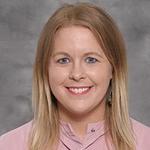
Your wellbeing is our focus!
Counseling Services provides time-limited, confidential counseling, psychiatric care, and support for currently enrolled students for personal, developmental, and crisis counseling needs. We provide confidential consultation and referral assistance for students to community-based mental health providers.
More ways to get started with Counseling Services
Services are confidential and free of charge
for all registered UMC students.

Questions ?
Jodi Ramberg LPC
(218) 281-8571
CONTACT OUR DEPARTMENT
Hours:
Monday - Friday: 8:00 am - 12:00 pm and 1:00 pm - 4:00 pm
Department Directory
dept events



